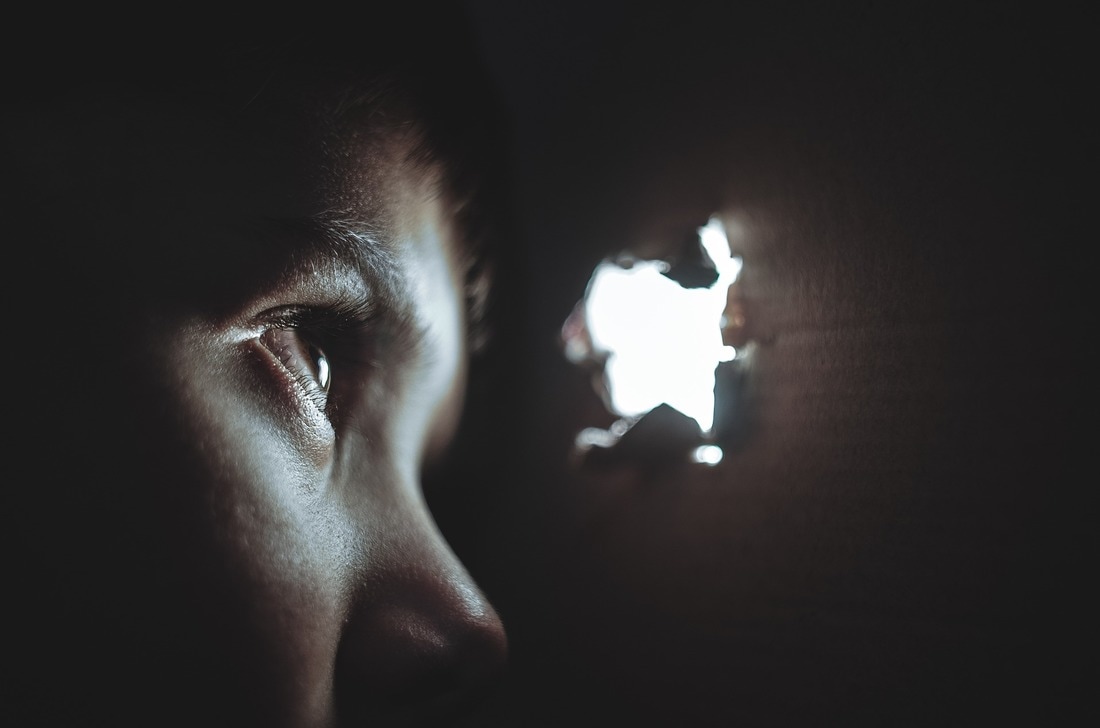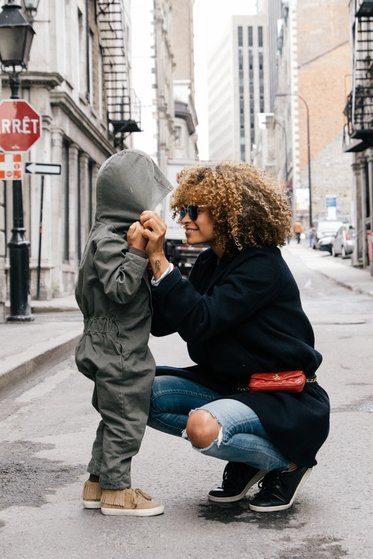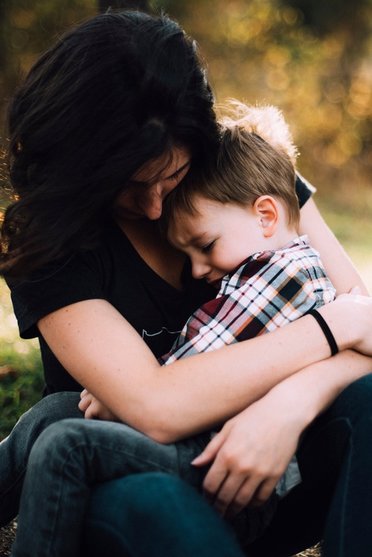|
Hidden just under the surface, anxiety is something we all experience. Anxiety is the experience of worry, nervousness or unease, and is typically linked to an upcoming event or something with an uncertain outcome. Education and outreach on mental health used to focus on depression but a review of 48 studies from across the world suggests that anxiety is now a much larger problem. In the past decade, anxiety has sky rocketed to epidemic proportions, especially in the United States where over 40 million people or 8 in 100 people experience unhealthy anxiety.
Medical solutions Xanax, Valium and Ativan are some of the benzodiazepines doctors prescribe to patients who are suffering from the effects of stress and anxiety. Sometimes anxiety is diagnosed as a depressive disorder and they prescribe selective serotonin re-uptake inhibitors (or SSRIs) such as Prozac, Cymbalta or Zoloft. These medications are known to stop anxiety or a panic attack within 30 to 60 minutes and generally last 11 to 20 hours. While they may at first seem like a godsend if you struggle with anxiety, there are many reasons to avoid taking them. In Chinese medicine they say, wherever there is a ‘front’ there will also be a ‘back,’ and these drugs have a very big back. According to Hahnemann,”All medicaments produce two quite opposite states in the human body: the primary effect which manifests itself when the remedy begins to operate, and the secondary effect which appears only after the lapse of several hours, when the primary effect has ceased.” An example is how a laxative purges the bowel shortly after consuming it, but the next day constipation follows. Another example is drinking coffee that at first awakens and energizes, then later creates tiredness and lethargy. This is why the afternoon cup of coffee is so necessary for long term coffee drinkers. This is known as the secondary effect of medications so taking any medication, although providing an immediate relief, will have a bigger back so to speak. There are still gaps in the science. Medical researchers do not know the exact mechanism by which benzodiazepines work. It is believed they raise levels of the calming neurotransmitter gamma-amino butyric acid (GABA) or increase GABA receptor sensitivity. GABA deficiency is linked to depression, anxiety and PTSD, insomnia and drug and alcohol dependence so the theory that improving GABA levels would reduce these symptoms is logical. In the big picture though, the overall effect of benzodiazepines on the body is not known. It is no secret that medications often have a long list of potential side effects and how they might affect each person can’t be predicted ahead of time. Benzodiazepines in particular are known to develop an addictive dependency. This makes these medications dangerous to stop and the person can either take them far longer than is recommended, or they have to carefully wean themselves off with medical supervision. Also, medications are given for a disease label rather than the unique set of symptoms that represent the underlying state of the whole person. It is known that treating symptoms superficially and not treating the deeper source issues may act as a temporary palliative and does not often provide a lasting solution. It can in fact suppress the natural expression of symptoms and lead to more grave health issues in the future. A symptom is like a white flag calling for attention and support, but it is not the real disease. Natural solutions Relief from overwhelming anxiety problems can come in many forms and there are many solutions that are natural. They do not need to forcefully change the brain’s chemistry and have possible side effects. Some of these include the more well-known methods such as cognitive behavioural therapy, hypnotherapy and high intensity interval training as well there are alternative methods such as meditation, dietary changes and seeing holistic practitioners. Homeopathy is one natural solution that has shown to be very effective for anxiety and stress. Stress has emotional and physical effects directly related to the person’s response to inner and outer pressures and perceived fears or conflicts. Long-term stress can develop into anxiety and each person expresses behavioural, mental and emotional symptoms. During a homeopathic session the mental and emotional state of a person, the physical symptoms, the perception of the person towards their experience, their susceptibility, a complete family history and whatever else the person brings up are addressed and explored by the homeopath. In allowing for the whole set of symptoms to be explored, this leads to discovering the deeper experience of the person and their inner state. The homeopath will then reach a remedy choice that can help the person with the root issues that produce anxiety. Einstein said that, ‘We can not solve our problems with the same level of thinking that created them.’ Homeopathy accesses the natural principles of healing and does not rely on mental therapy to get us out of the loop of our own thinking process. A lot of the common tools and techniques such as graduated exposure therapy, slowed breathing or distraction are useful and can help manage anxiety and keep a person functional, however getting to the root issues can make real and long term change possible. With the help of homeopathy we are able to fill in the source of both what inspires the individual and of the unhealthy state that produces disease. This is the beauty of it, the homeopathic process can help in cases of depression, anxiety and stress without causing further harm, and without or in conjunction with medications. Einstein knew what he was talking about when he said that we can only solve our problems with a different level of consciousness than where we started with it. Holistic healing approaches are one way to shift levels and see profound results.
0 Comments
The effect of being bullied can have long-lasting effects and be very traumatic. It can lead to chronic anxiety and stress, and if it happens during childhood the effects can be even more intense. There have been many headline stories of young people ending their lives after being repeatedly attacked by bullies at school. What can we do to protect our children and ourselves?
An urban issue? The world population has nearly doubled since the year I was born and since 2009 the majority of people on the planet are now living in city environments. This has lead to increased levels of tension, aggression and stress that we deem as the new 'normal.' It is the nature of the urban beast so to speak, so we have to live with it. The word scapegoat refers to a person who is compelled to bear the burden of someone else's guilt, or to symbolically bear the burden of sin. It is essentially a release valve for tension and stress as well as aggression. I was watching a wonderful documentary, The Hidden Life of Wolves, by Jim and Jamie Dutcher and discovered that in wolf hierarchy there is an omega role. Although the observations of the omega have been made mostly in unnatural settings such as in captivity or living in close proximity to human observers (and so may be exaggerated to truly wild wolf behaviour), this mirrors the way most humans are now living in relatively unnatural environments that are enclosed and overcrowded so it is perhaps relevant. A need for the omega? According to the Dutchers, the social hierarchy of a pack is what maintains order dictating who makes decisions, who mates with whom, who eats first and who eats last. Although wolves are very affectionate and playful, this order is constantly reinforced by displays of dominance and submission. The lowest position in the pack hierarchy is one or more wolves, usually a male and a female, known as the omegas. These wolves are dominated and pushed around by all the other wolves in the pack. The only apparent consolation for the omega wolf is that they are typically the jester of the pack and are the one who starts up play and chasing games, perhaps to diffuse these very tensions. You can hear the concern and worry in the Dutcher's narrative about a favoured wolf that is given the role of omega. "When I first recorded his howl, I was amazed at what was coming through my headphones. Lakota, eyes shut and head thrown back, was just pouring his heart out. His rich, mournful voice soared into the evening and hung in the air for what seemed like forever. I actually found myself welling up at the sheer beauty and expressiveness of his song. I felt as though I were listening to him sing the blues, giving voice to all the loneliness and pain that his social position brought him. Even when new pups were added to the pack in later years, no member of the Sawtooth Pack ever came close to comparing with the beauty and sadness of Lakota’s howl." Who is the omega? Once the role is determined, the omega wolf seems to be left without any other options and he must play the role utterly and completely each and every day. He has been delegated to a role not of his own choosing. Even if it seems unjust or unfair, the only way his role changes is if another wolf is given a lower rank. As this omega bears the brunt of the tensions and aggressions of the pack one or many of the wolves assert themselves over him and he will flip over onto his back whimpering in surrender. Generally this is a bloodless exchange but at times, especially during the breeding season, it can get vicious and extremely difficult to watch. Essentially the softest and gentlest of the group needs to become assertive and aggressive to simply maintain his space, have access to food and not be attacked. Watching the wolves' aggressive behaviour around the omega is similar to the disturbing video I saw recently of a group of young people where the bully is beating on another girl, ending with the bully standing over her and hitting her while the girl is cowering and covering her face. The rest of the youth looked on, no one moved to get involved or stop the violence. According to Glynis Sherwood, "Usually they are either sensitive, unhappy, vulnerable, ill and/or the outspoken child or the whistle-blower." We make weakness, difference or threat to social order into something separate and maintain that isolation through violence and aggression. The role of scapegoat does not have to remain throughout life however. And the idea that we can stop bullying by campaigning and educating people about the bully's behaviour only goes so far. What we can do about bullying? It is the inner world of the person that needs support, their perception of themselves in relation to the world around them is what is possible to change. A bully is a force of nature looking for an outlet, how can someone no longer be a suitable receptor? I have seen in my own experience how a core homeopathic remedy can change our inner experience profoundly. The child who has an illness can be given a chance to regain their strength, the unhappy an opportunity to discover their joy, the vulnerable a means to develop their strengths, the sensitive an avenue to explore their talents, the outspoken support and encouragement for their voice. In my own experience a core remedy was like going from a 40-watt bulb to a 100-watt bulb. Suddenly who you are burns brighter and gives off more light. This approach will not directly change a bully’s behaviour, but if it enables the bullied person to feel stronger and less vulnerable, then they often find that they cease to be the target of bullying. With an increase in self-esteem and confidence the cycle can be broken naturally without confrontation and blame. The child can then see a reduction of stress and anxiety and continue with other methods to help recover from the experience and to move on with their life. ~ How does holistic treatment support healthy living? Why try homeopathy? Having a life long study in the principles of nature and healthy living, Lauren Trimble is happy to share her knowledge and experience. The art of retuning the body’s natural healing capacity & developing consciousness in a compassionate and gentle way is the gift that homeopathy brings to her current holistic practice. If you enjoyed this article find out more at Birdsong. Anxiety is an individual experience
Extreme anxiety can arise with no apparent reason in certain children, but usually a child is susceptible to specific situations or events. These can include a major life change such as moving to a new city or school, or changes at home such as the parent's separation or a new relationship. Other susceptibilities can be witnessing a distressing event, or being in an upsetting situation such as emotional abuse or bullying. If the child is different in some way such as being LGBTQ or having a visibly noticeable difference such as a birth mark, that can also trigger anxiety. However, we have all observed that what upsets one child has no effect on another child. What to look for? How can we tell if a kid is experiencing anxiety that is unhealthy? With young kids we tend to give a lot of tolerance for personality and individual character or for situations that are obviously difficult. Usually we can say, 'just give it some time and they will find their footing.' Or we can discuss the situation with them and then see if they outgrow a phase. There are things we can look out for such as sudden changes in behaviour that seem out of character or are not the usual growing pains. If a child has unexpected changes of their feelings, such as a happy child that is suddenly worried, guilty, angry or fearful this is something to observe closely. When the emotions do not shift naturally and seem to get stuck on only one 'channel,' that can point to a lack of adaptation and spontaneous response. Hopelessness and rejection can be signs of something deeper, and if left unaddressed may lead to more serious issues such as depression, a desire to self harm or even of suicide in later adolescence. Also, for older children, the use of drugs or alcohol, especially when they are alone can signal a need for soothing, coping and numbing out uncomfortable thoughts and feelings. It is also important to notice if they are complaining of physical symptoms like frequent headaches or stomachaches, if they have problems eating or sleeping, or have a general lack of energy. Take notice if they start to make odd or repetitive movements such as when they are playing or resting. It is good to observe as well if they start to avoid things that before they enjoyed or liked, if they are suddenly less social or interested in being with others. And if they show any signs that they are having trouble coping with regular activities and normal everyday challenges. What if I don't have a diagnosis of anxiety for my child? Observable signs and symptoms determine unhealthy anxiety in children. In older children they may also be able to provide their inner experience of physical symptoms as well as thoughts, imaginations and dreams. An official diagnosis can be difficult since behaviours such as shyness, anxiety nervousness, strange eating habits, and outbursts of temper can occur as a normal part of a child's development. It is important to be able to discern if they happen very often, last a long time, occur at an unusual age, or cause significant disruption to the child's and/or family's life. It can be reassuring to have medical tests and a diagnosis since a child is unable to fully express or understand their own symptoms and inner experience, but in some situations they may be too costly or unavailable. When there is a diagnosis and the doctor is doing tests, this can help to direct the course of action to take. With homeopathy however, there is no need for a specific diagnosis of anxiety, a serious concern is enough to warrant a trip to the homeopath. Then in collaboration with the parents, they can see if there is a general remedy to help with the stage and adaptation that the child is struggling with. In more serious cases when something is definitely wrong, it can be good to give a deeper, more individualized core remedy to help the child with all aspects of their life and to give them an opportunity for more healthy development and balance. Homeopathy is a completely natural approach and instead of prescribing medications or lengthy therapy, a few sessions can often determine the situation and resolve the issue or with the suggestion of a remedy or remedies this can help the child to naturally resolve their issue. By naturally adapting to their current situation a child can develop greater resilience, a stronger immune system, develop their individuality and reduce the level of toxicity or stress that medications may cause. ~ How does holistic treatment support healthy living? Why try homeopathy? Having a life long study in the principles of nature and healthy living, Lauren Trimble is happy to share her knowledge and experience. The art of retuning the body’s natural healing capacity & developing consciousness in a compassionate and gentle way is the gift that homeopathy brings to her current holistic practice. If you enjoyed this article find out more at Birdsong. “Help, my child has anxiety!”
According to the Canadian Mental Health Association anxiety disorders have been found to be the main mental health problem affecting young children and adolescents today. Although anxiety is a perfectly normal response to everyday stressors, not every child copes with or experiences anxiety in a healthy way. If left unaddressed excessive anxiety can affect how children do at school, how well they form relationships with others and can disrupt normal development, all of which might affect them later in life as adults. Is there a natural option? Homeopathy can help with various issues related to anxiety including the more extreme types such as hyperactivity, OCD, oppositional defiance, anger issues and developmental delay. The professionally chosen remedy can help to improve the child’s concentration, moods, sensitivities, irritability, and can improve the overall wellbeing of the child. Homeopathic remedies are usually quick acting, easy to administer and are given infrequently. When individualized holistic treatment is followed the improvement can be long lasting and often negates any need for long-term medications. Although each child’s situation is different, anxiety and related issues often improve within a few weeks. The symptoms will tend to reduce in intensity and frequency, and then fade away. If they return, several options are available such as repeating the remedy, selecting a new remedy or increasing the potency of the original remedy. Often, as the child grows and develops their experience changes and different remedies are given in each new stage. Why a natural approach is worthwhile? Besides the basic developmental and intellectual growth, parents want their children to be happy and emotionally self-regulating. In the process of learning and experimenting, a range of anxiety, frustration and mood swings are expected during the growing years. Some of the things that cause anxiety can be new situations, the craving to excel and improve, and the discomfort of not understanding or of not being able to do something. These can lead to crying, fretting and whining. A healthy child gets fully into the reaction and then gets over it quickly. They are open to being comforted and to learning about their experience. If the reactions are pronounced, overly repetitive, continuous or a general hindrance to a generally happy life, it is time to consider that there is an unhealthy level of anxiety occurring for some reason and a visit to the homeopath can be in order. It is important that children develop the appropriate age related skills and learn how to experience anxiety and other difficult emotions. It is important to understand that homeopathy is not a way to remove or suppress this discomfort. What it can do is to reduce the extreme reactions and improve the adaptation and resilience that children need to develop and grow. It can also help with the delicate individuation process that allows a child to develop into their inherent potential, to improve their vitality, to build up their natural immune system that is intrinsically tied to their individuality and to ensure a healthy and happy adult life. This individuation process is governed by unconscious playful learning, conscious exertion and by contracting and recovery from childhood illnesses. The use of medications and other suppressing treatments can disrupt this delicate process. Young children were never given the number of medications or the types of medications they are getting today. A natural and more holistic approach using homeopathy and naturopathy can provide the necessary tools that encourage healthy growth and development for each child and improve their general health and well being. Anxiety does not have to be a lifelong debility for your child or affect them later on in life. ~ How does holistic treatment support healthy living? Why try homeopathy? Having a life long study in the principles of nature and healthy living, Lauren Trimble is happy to share her knowledge and experience. The art of retuning the body’s natural healing capacity & developing consciousness in a compassionate and gentle way is the gift that homeopathy brings to her current holistic practice. If you enjoyed this article find out more at Birdsong. |
Lauren TrimbleHomeopath and Holistic Practitioner. Archives
October 2022
|





